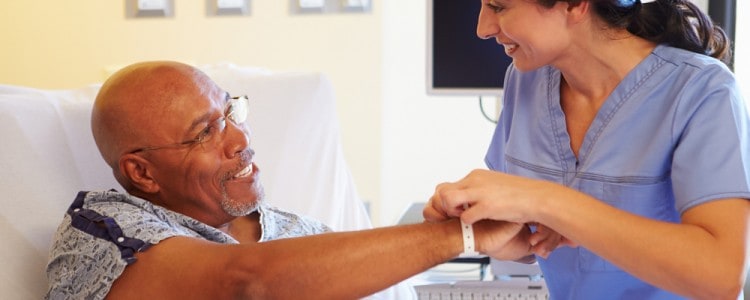Exciting and Expanding Opportunities in Nursing
Take a look at these expanding employment opportunities for nurses that many healthcare professionals may know little about.
Employment opportunities and career paths for nurses go way beyond just hospitals, assisted living facilities and home care nursing. In a recent article entitled “Up-and-Coming Nurse Niches”, Megan Malugani discusses four specialized areas of nursing that are growing in demand and may provide an even more exciting and rewarding career alternative in healthcare.
Correctional Nursing
Nurses who work behind bars with the nations 2 million inmates and juvenile offenders deal with a range of medical problems, from toothaches to trauma. “A lot of our clients don’t have access to healthcare easily,” says Gayle Burrow, MPH, BSN, director of corrections health for the Multnomah County Health Department in Portland, Oregon. “Correctional nurses like the fact that we get to take care of people who need a lot of services and education.”
Because correctional nurses work autonomously — assessing new inmates, helping manage the chronic diseases and mental illnesses of long-term prisoners and responding to acute illnesses and injuries — they must be confident, mature and well-rounded. In addition, they “must have the ability to look at a person not by what they do, but for who they are,” says Burrow, a certified corrections health professional who is on the board of the American Correctional Health Services Association.
Nursing in prisons and jails is safe, she says, because guards are always nearby and the environments are carefully controlled.
Forensic Nursing
Nurses have always worked with victims and perpetrators of violent crime, but it wasn’t until the early ’90s that “forensic nursing” became a common description for this work. Now, there are an estimated 7,500 nurses who regularly fill forensic-nursing roles, from those who work full-time investigating deaths or treating violent offenders at psychiatric facilities to those who moonlight as Sexual Assault Nurse Examiners (SANE) or legal nurse consultants. “A lot of us in the field have the hope that our interventions are going to help break the cycle of abuse and violence,” says Daniel J. Sheridan, PhD, RN, president of the International Association of Forensic Nurses.
While the television show “CSI” has sparked an interest in forensics, Hollywood’s portrayal of forensic nursing is misleading, he says. “There are exciting moments, but you have to be patient, methodical and thorough in your assessments in order to withstand the scrutiny of court,” says Sheridan, who runs a master’s degree program in forensic nursing at Johns Hopkins University School of Nursing. “You have to look for even the smallest sign of injury to show that an assault did or did not occur.”
Nurses can get a taste of forensic nursing by participating in one of the more than 420 SANE programs offered at hospitals and other sites around the country, Sheridan says.
Holistic Nursing
Although skepticism regarding alternative therapies exists, holistic nursing is a growing specialty, thanks to healthcare consumers’ acceptance of the philosophy that treating the whole person is better than treating just a disease or symptom. Any nurse who embraces the mind/body/spirit connection and empowers patients to participate in their own healing practices holism, says Sonja Simpson, MSN, a certified holistic nurse and president of the American Holistic Nurses Association.
In addition to embracing the holistic philosophy, many nurses become proficient or earn certification or licenses in such healing modalities as therapeutic massage, aromatherapy, imagery, herbology or Reiki that complement Western medicine, Simpson says. While some practitioners work full-time nursing jobs and practice their healing modality on the side, others take positions in holistic wellness centers, spas, health clubs and physicians’ offices.
Parish Nursing
“Probably a parish nurse’s most important role is helping people understand how faith and health fit together,” says Alvyne Rethemeyer, MSN, director of the International Parish Nurse Resource Center. Parish nurses promote healthful living by educating and counseling parishioners on exercise and nutrition, advocating for community health, helping sick parishioners navigate the medical system, and developing support groups for bereavement, parenting, divorce and other issues.


